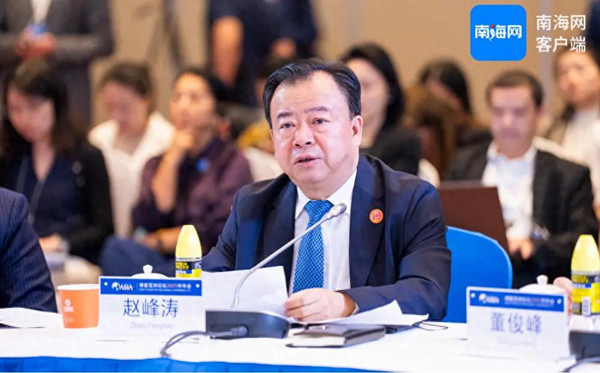CIDCA vice-chairman: Connectivity in digital era shapes closer Asian community with a shared future
"The prosperity of Asia comes from openness, and the future of Asia lies in unity", said Zhao Fengtao, vice-chairman of the China International Development Cooperation Agency, during a sub-forum of the Boao Forum for Asia Annual Conference 2025 on March 26.

"From the Quanzhou Port in Fujian province to the today's quantum communication technology in the Hainan Free Trade Port, and from the camel bells echoing along the ancient Silk Road to the establishment of the Digital Silk Road, connectivity in the digital era has emerged as a novel bond that builds a closer Asian community with a shared future", said Zhao.
According to him, Asia contributed 60 percent of global economic growth in 2024, demonstrating considerable development resilience. Compared with other economies, the region's environment of openness, connectivity and integrated regional development has played a significant role in sustaining development momentum, he said.
He shared China's exploration and progress in enhancing regional connectivity, which included cooperation with the Association of Southeast Asian Nations and East Asian countries, signing memorandums of understanding on cooperation with over 70 countries, reinforcing infrastructure connectivity, and supporting construction of cross-border facilities such as roads, bridges, railways and ports.
However, Zhao pointed out that challenges remain not only in Asia, but also worldwide in terms of digital connectivity, including unbalanced coverage of digital infrastructure, a shortage of digital talents, barriers in cross-border data flow, digital hegemony and technological monopolies, and inadequate international digital governance system. "Connectivity in the digital era serves as both a developmental and governance imperative, which requires greater engagement from the international community", Zhao said.
The Chinese government will tap its advantages to continue promoting digital connectivity and common development of Asia through infrastructure development, digital governance improvement and digital capacity enhancement while safeguarding digital security and sovereignty, Zhao added.
In terms of infrastructure construction, China will continue to assist other developing countries in building digital infrastructure and reducing intervention costs, he said. The leading role of governmental assistance and inter-governmental cooperation will also be fully utilized to drive more investment, trade, projects and resources, according to Zhao. Policy guidance and institutional guarantee will be enhanced to coordinate the advancement of landmark digital projects and small-yet-smart livelihood projects, in a bid to build a well-connected digital infrastructure network across Asia, he concluded.

Follow us on WeChat
京ICP备18041594号-1
京公网安备 11010202005508号

Follow us on WeChat


